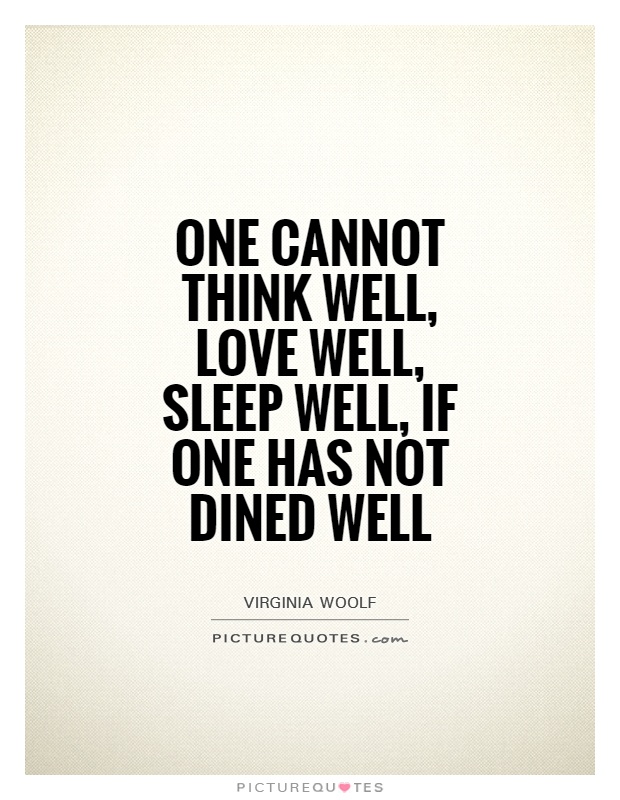One cannot think well, love well, sleep well, if one has not dined well

One cannot think well, love well, sleep well, if one has not dined well
Virginia Woolf, a renowned writer and thinker of the early 20th century, once famously said, "One cannot think well, love well, sleep well, if one has not dined well." This statement encapsulates the importance of nourishment not only for the body but also for the mind and soul. Woolf, known for her introspective and philosophical writings, understood the deep connection between food and overall well-being.In Woolf's works, such as "To the Lighthouse" and "Mrs. Dalloway," food often plays a significant role in the lives of her characters. Meals are not just about sustenance but also serve as a means of connection, communication, and reflection. Woolf's characters gather around the dining table to share their thoughts, feelings, and experiences, creating a sense of intimacy and community. Through these moments of dining, Woolf explores the complexities of human relationships and the ways in which food can bring people together.
Woolf's assertion that one cannot think well without dining well speaks to the idea that food is essential for cognitive function. A well-balanced meal provides the necessary nutrients and energy to fuel the brain, allowing for clear thinking and creativity. In Woolf's own life, she often struggled with mental health issues, including depression and anxiety. It is possible that she recognized the role that proper nutrition played in maintaining her mental well-being.
Similarly, Woolf's statement about the connection between dining well and loving well suggests that food can enhance our emotional connections with others. Sharing a meal with loved ones can create a sense of closeness and intimacy, fostering deeper relationships and emotional bonds. In Woolf's novels, food is often used as a symbol of love and care, demonstrating the ways in which nourishment can be an expression of affection and connection.
Woolf's assertion that one cannot sleep well without dining well highlights the importance of food in promoting rest and relaxation. A healthy meal can help regulate sleep patterns and promote a sense of calm and well-being. In today's fast-paced world, where many people struggle with sleep disorders and insomnia, Woolf's words serve as a reminder of the importance of prioritizing proper nutrition for a good night's rest.












 Friendship Quotes
Friendship Quotes Love Quotes
Love Quotes Life Quotes
Life Quotes Funny Quotes
Funny Quotes Motivational Quotes
Motivational Quotes Inspirational Quotes
Inspirational Quotes